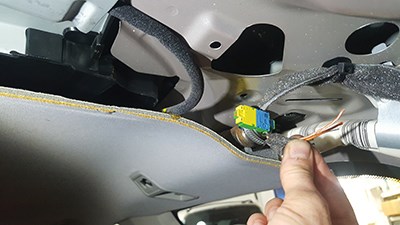Ever been car-jacked by a toothy rodent?
If you’ve ever gone to start your vehicle in the morning, while in a rush to get to work or school, only to find the darn car or truck won’t start, you know how annoying and stressful it can be.
Finding a rat or mouse has chewed through your car’s electrical wires somehow makes it seem like the day has been ruined intentionally.
Because Squamish is a port city, rodents aren’t a new problem, but changes to what encases the wires in vehicles has increased the issue of the little animals chewing through wires, according to Noel Koehn, owner of Squamish’s Newport Auto.
They are chewing wiring covers more often because auto manufacturers have switched from using a petroleum-based plastic to cover the wiring with a vegetable-based type of plastic, according to Koehn.
The move was part of the car industry’s green movement, he added.
Koehn said he sees about 30 vehicles a year that have had their wires chewed through by rodents, usually mice and rats.
“We had one day when we had three vehicles towed in where the wiring harness was chewed,” he said. “We had one [mouse] run right down a technicians arm while he was doing an oil change on it.”
The problem is worse during the colder months when the rodents seek warmth.
Koehn said rodents also get into the column area, right below the wipers, and make nests.
“We just had one in a Hyundai this morning that had gone right into the heater core and made a nest above the cabin air filter,” he said, adding the shop sees at least one car a day with “mouse turds” in the engine department.
“It is a big problem here,” he said.
And the problem isn’t cheap to fix, Koehn said. Removal of a rat’s nest can run up to $400 and more than $1,000 to replace chewed wiring in some vehicles, he said.
The only success in deterring them that Koehn has seen is using mothballs under the hood.
According to a representative with the Sea to Sky Corridor’s Critter Get Ritter pest control service, the best ways to avoid rats getting into an engine is to park in a garage and try to avoid starting the vehicle at dusk or in the evening because the rodents come out at night and search out warmth.
With the increase in residents, many commuting to Vancouver and back, the representative said the issue of rodents in vehicles has increased.
“Rats are a problem in many communities,” acknowledged Vanessa Isnardy, Squamish’s WildSafeBC community coordinator.
“To avoid having rats, it is important to remove what they need to survive: food, water and shelter.”
Isnardy recommends keeping the area where cars are parked well lit, removing any hiding places and keeping the yard area tidy and free of attractants.




